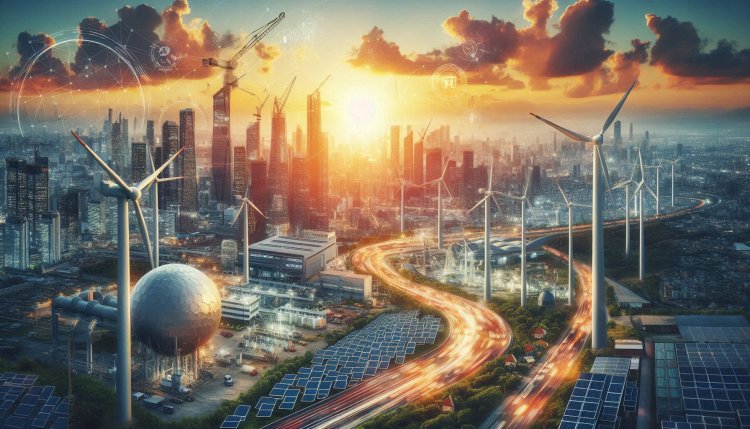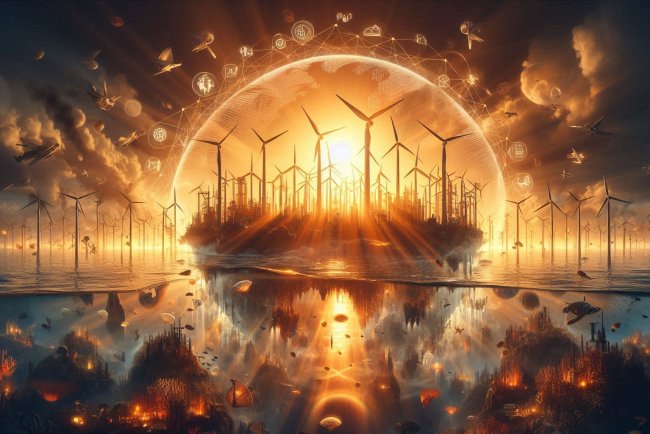Renewable Energy and the Transition to a Low-Carbon Economy
Explore the role of renewable energy in transitioning to a low-carbon economy. Learn about sustainable solutions for a greener future.

Renewable Energy and the Transition to a Low-Carbon Economy
In recent years, the world has witnessed a growing urgency to address climate change and transition towards a low-carbon economy. One of the key solutions to reducing greenhouse gas emissions and mitigating the impacts of global warming is the widespread adoption of renewable energy sources.
The Role of Renewable Energy
Renewable energy sources such as solar, wind, hydroelectric, and geothermal power offer a sustainable alternative to fossil fuels. Unlike coal, oil, and natural gas, renewable energy sources are abundant, clean, and do not produce harmful emissions when generating electricity. By harnessing the power of the sun, wind, and water, countries can reduce their dependence on fossil fuels and significantly lower their carbon footprint.
Furthermore, renewable energy technologies have become increasingly cost-effective and efficient in recent years, making them a viable option for both developed and developing nations. The declining costs of solar panels, wind turbines, and energy storage systems have made renewable energy more competitive with traditional fossil fuel-based power generation.
The Benefits of Transitioning to a Low-Carbon Economy
Transitioning to a low-carbon economy powered by renewable energy offers numerous benefits beyond reducing greenhouse gas emissions. By investing in renewable energy infrastructure, countries can create new jobs, stimulate economic growth, and enhance energy security. The renewable energy sector has the potential to drive innovation, attract investment, and improve energy access in remote or underserved communities.
Additionally, transitioning to a low-carbon economy can help reduce air pollution, improve public health, and mitigate the impacts of climate change. By phasing out coal-fired power plants and increasing the use of renewable energy sources, countries can improve air quality, reduce respiratory illnesses, and protect vulnerable populations from the harmful effects of pollution.
Challenges and Barriers
Despite the numerous benefits of renewable energy and the transition to a low-carbon economy, there are several challenges and barriers that must be addressed. One of the main challenges is the intermittency of renewable energy sources such as solar and wind power. Unlike fossil fuel power plants that can operate continuously, solar and wind power generation is dependent on weather conditions and may fluctuate throughout the day.
To overcome this challenge, countries need to invest in energy storage technologies, smart grids, and flexible power systems that can balance supply and demand in real-time. By integrating renewable energy sources with energy storage solutions and digital technologies, countries can enhance grid reliability, stability, and resilience.
Policy and Regulatory Framework
A supportive policy and regulatory framework is essential to accelerate the transition to a low-carbon economy and promote the widespread adoption of renewable energy. Governments can incentivize renewable energy deployment through tax incentives, feed-in tariffs, renewable energy targets, and carbon pricing mechanisms.
Furthermore, policymakers can establish clear targets, regulations, and standards to encourage investment in renewable energy infrastructure, research and development, and grid modernization. By creating a conducive policy environment, countries can attract private sector investment, stimulate innovation, and drive the transition towards a sustainable energy future.
Conclusion
The transition to a low-carbon economy powered by renewable energy is crucial to addressing climate change, reducing greenhouse gas emissions, and building a more sustainable future. By investing in renewable energy technologies, countries can create new economic opportunities, improve energy security, and protect the environment for future generations.
While there are challenges and barriers to overcome, the benefits of transitioning to a low-carbon economy far outweigh the costs. With strong political will, innovative solutions, and collaborative efforts, countries can accelerate the shift towards renewable energy and pave the way for a cleaner, greener, and more resilient future.
What's Your Reaction?

















